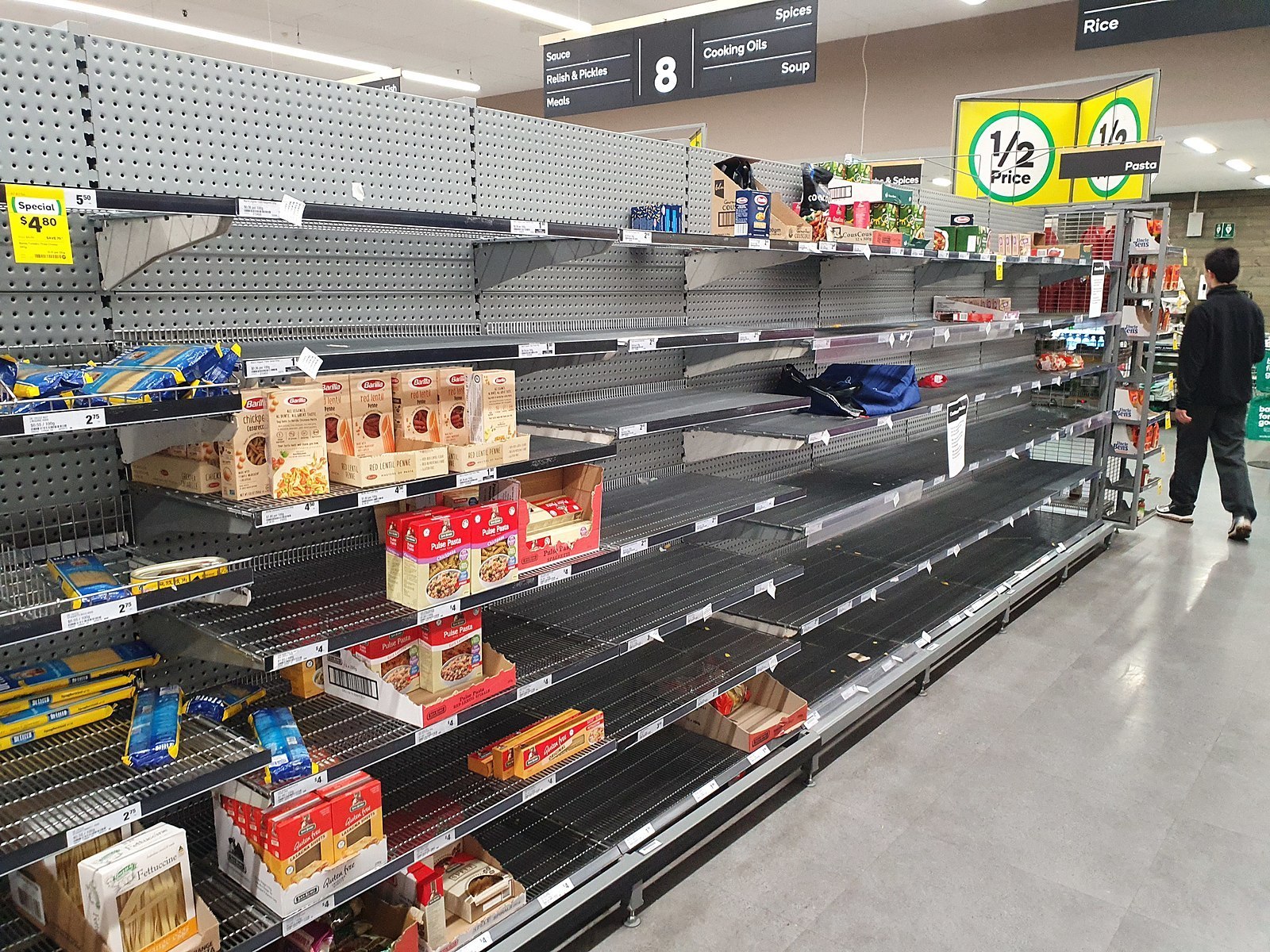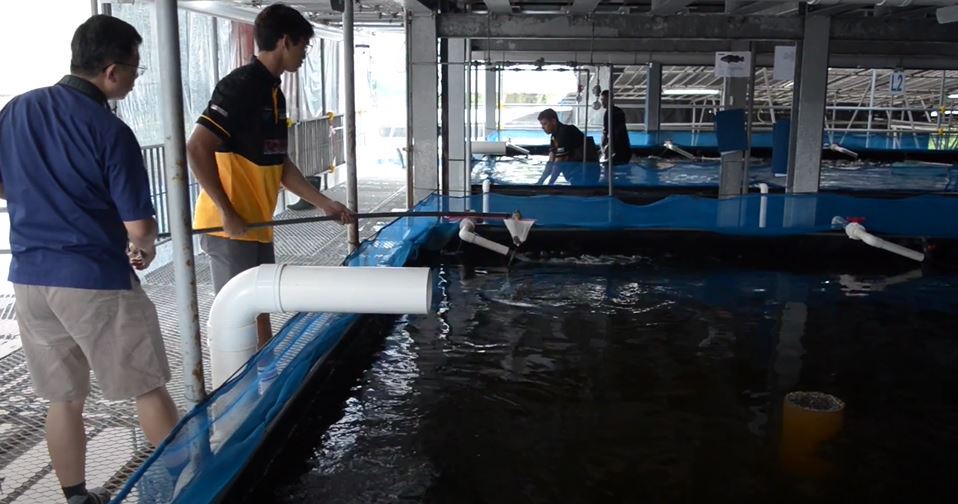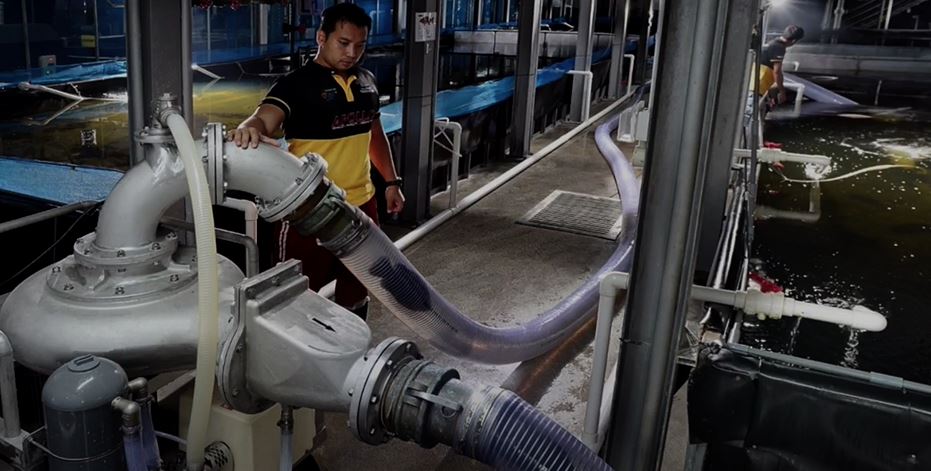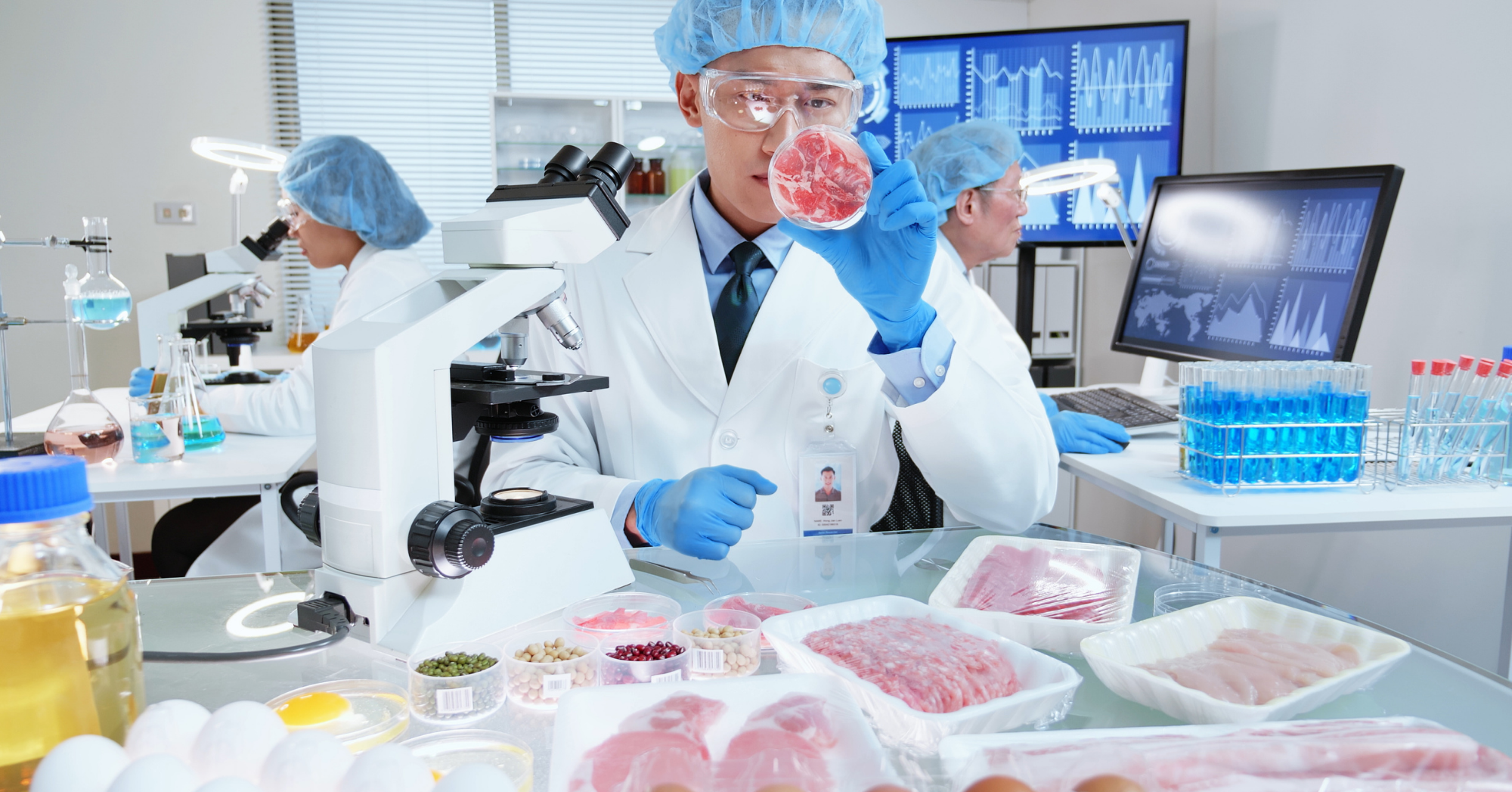Fill my belly!
An eight-storey fish farm sounds a little flashy, no? It’s a swim away from the fish farms we tend to see on television, typically single-floored and even offshore. But it’s almost an innovative necessity here in Singapore, where food security has long been an issue. After all, Singapore gets more than 90 per cent of its food from outside its shores.
Worries were only exacerbated during COVID-19 in Singapore by the rows of empty shelves that sprawled across our supermarkets, naturally pushing us into panic buying mode. And despite politicians and supermarket chain representatives telling us to calm down, we’d really felt like our food security had been threatened for a moment there.

A strong reason why we can take confidence in our food security is our “30 by 30” vision. Formed in 2019, the goal by Singapore Food Authority seeks to ensure that 30 per cent of Singapore’s nutritional needs are self-supplied before 2030. And so, the government has been putting sizeable amounts of money into innovative solutions that can get us there.
Apollo Aquaculture’s flashy eight-storey fish farm is one of those innovative solutions.
So, what about this eight-storey fish farm?
Decked out with high tech equipment, the fish farm will be able to produce up to 3,000 tonnes of hybridised grouper, coral trout, and shrimp annually. This vertical farming efficiency is more than six times that of established aquaculture operations in the country.

This isn’t the Apollo Aquaculture’s first foray into fish farming. They’ve been around for a relatively long time, founded in 1969 and adopting cutting-edge methods from Germany, Japan, and Israel and implementing them across 300 of their farms in the region. Their farm in Lim Chu Kang is in fact three-storeys high and has been open for over a decade, producing close to 200 tonnes of fish for us to consume yearly.
Apollo Aquaculture uses the intricate data sets that it has built over the years to build a successful operation.
“We understand the amount of water required, the condition of the water, and the amount of feed – measured down to a single gram per cubic meter of water. As a result, we’re able to produce fish in a much shorter time frame, at the right size for the market,” said spokesperson Crono Lee.
Such is the efficiency that the company only needs to replace five percent of the water in their tanks at a time when contaminated by fish effluent, though the target is to bring that down to zero with the use of aquatic plants to clean and treat the water naturally. The amount of water wastage generated by the company is significantly less than that of many other onshore fish farms, where farmers routinely clean out and replace entire tanks.
And about the choice to go vertical, a key reason is the lack of land that our tiny little nation has in general.
“We’re a very small country, and it’s very difficult to secure land… So rather than building sideways, and expanding horizontally, why not expand vertically?” said Lee.
Jumping on a well-populated list of sustainable farming initiatives in Singapore.
Where fish is concerned, Apollo Aquaculture is not the only company working towards our 30 by 30 goal. For one, there’s an offshore farm that opened in late-2019, approximately five kilometres off of Singapore’s Changi Point Ferry Terminal. The farm uses a closed containment system to produce around 166 tonnes of barramundi, red snapper, and grouper each year across four tanks.

The system “effectively isolates the fishes from the seawater when the quality of the surrounding water turns poor,” said Yih Tng.
Our initiatives also extend beyond fish. During the pandemic, efforts were put into allowing farms to ramp up on production and to accelerate local food production. These productive farming systems leverage technology and automation to reduce manpower and harness the power of artificial intelligence. So in a nutshell – they’re super cool.
One of such super cool farms is I.F.F.I, a “mega high-tech indoor vegetable farm” that monitors its vegetables’ growth. They’ve also got an advanced environmental control system to give the greens all the love that they need, ensuring a even higher growth rate than traditional farms, which may get hit harder by environmental conditions and climate change.
And given Singapore’s food waste problem with perishables, the farm also uses an innovative water treatment system to reduce bacteria in crops, while extending the shelf life of its produce. You’d be thankful for the kangkong in your fridge that stay fresh for a day or two longer.
“No animals were harmed.”
Urban farming solutions are plentiful and important to Singapore, and they’re also markers of the impressive tech that our social enterprises are using. We’ve also got companies like Eat Just, who are taking sustainability to newfound levels, with the ability to grow cultured chicken meat in labs. Real animal cells are used to develop the chicken meat, and they might arguable even be more “pure” than live poultry.

The real chicken meat that we eat always comes at the expense of chickens, which are frequently injected with antibiotics and hormones to meet the unyielding needs of modern supply chains. If you buy meat from Eat Just, you’ll get meat with no antibiotics. As opposed to regular chicken, Eat Just’s chicken has “extremely low and significantly cleaner microbiological content”.
You can, by the way, purchase Eat Just’s lab-grown chicken soon enough, as they’ve been given the green light to sell the product in Singapore. Perhaps in the years to come, we’ll all be eating lab-grown meats and actually liking them. Besides, they’re just about as ‘artificial’ (if not less artificial) than the supposed fresh foods that we eat on the daily.
Sustainability is the new normal. With the existential threat of climate change continuing to haunt us, the earlier Singapore gets a grip on its food security, the more days its residents would be able to live worry-free.
Join the conversations on THG’s Facebook and Instagram, and get the latest updates via Telegram.












